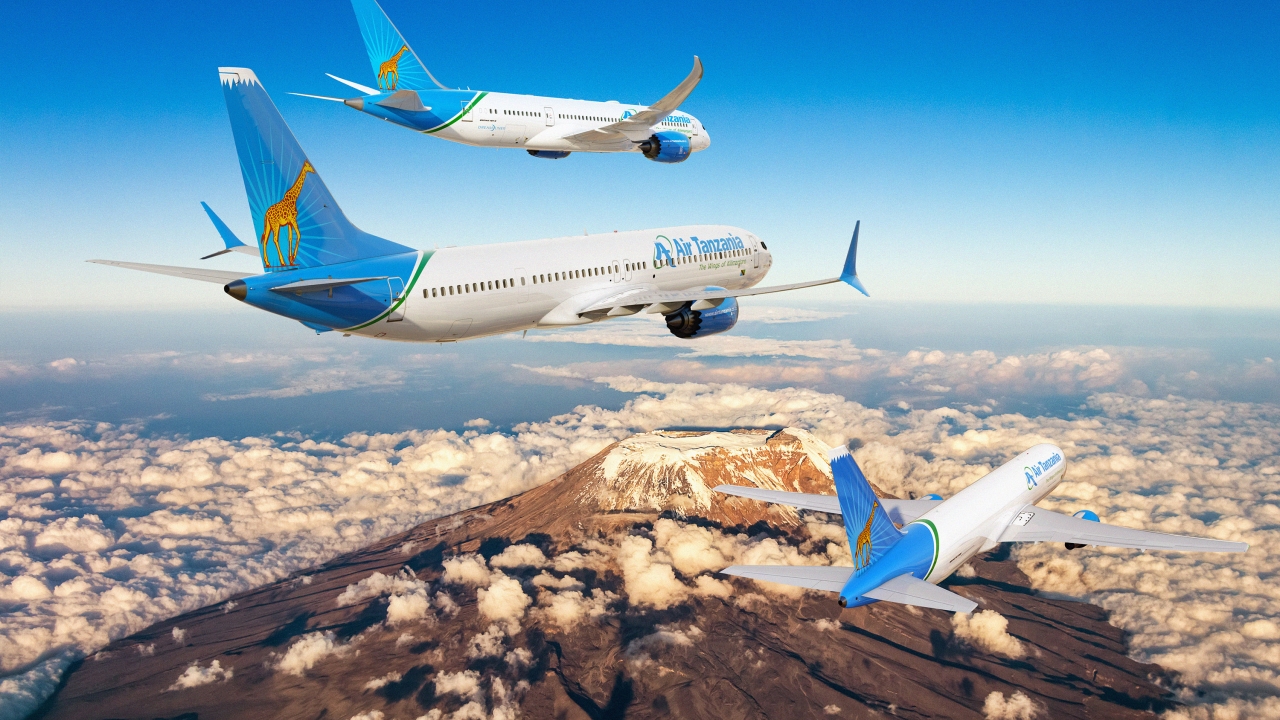Baptism of fire for Precision’s chief
Das es Salaam-based Precision Air’s roots date back to 1987, when a former East Africa Airways pilot set up a crop-spraying operation. In 1993, the airline took on its current name and started operating ATRs. Group managing director and CEO, Patrick Mwanri, explained to Victoria Moores how he is now leading the airline through its next chapter – emerging from the Covid-19 downturn.

Covid-19 has caused a sharp drop in traffic for Tanzanian carrier Precision Air, creating a tough backdrop for Patrick Mwanri’s first year as CEO.
“It has been a very challenging moment, with a lot of uncertainty,” Mwanri confessed. Passenger numbers between March and May 2020 were 81% down – and 92% lower than forecast. Interline and codeshare traffic also plummeted by 60%.
Precision normally operates two ATR 42-500s, two ATR 42-600s and five ATR 72-500s to 13 destinations from its Dar es Salaam home base.
However, the coronavirus forced the airline to cancel all its regional flights to Nairobi (Kenya) and Entebbe (Uganda), which were expected to carry 35,229 passengers in April and May.
Likewise, Precision was unable to operate tourist flights to Zanzibar, Arusha and Serengeti – and Kilimanjaro frequencies were reduced – costing another 20,272 projected passengers.
Domestic flights fell to 253 rotations, 37% down from the 401 that Precision normally operates. “This will result in decline of projected [domestic] passenger numbers from 26,142 to 11,073, which represents a 58% fall from the projected number in the 2020 budget,” Mwanri said.
In response, Precision’s operational fleet was slimmed to just two ATR 42-500s during the downturn. At the time of writing, it was progressively returning some services, with daily load monitoring and fortnightly capacity reviews.
This baptism of fire came just a few months after Mwanri was named full CEO in November 2019, but fortunately he is no stranger to the airline – or to tough challenges.
Mwanri grew up in Tanzania, where he studied chemistry, physics and mathematics, before moving to Russia to study computer science and engineering… in Russian, after just one year of studying the language.
“It was good, very interesting. I had a lot of support from my Russian colleagues,” he said. “In the beginning, it was tough to understand the subject, but I kept with it.”
In 2001, he returned to Tanzania and took a job with ground-handler Swissport. “They wanted graduates with some computer background, because they were putting [equipment from air transport IT specialist] SITA, in place. After that, I was promoted and went to load control.”
Swissport performed ground-handling for Precision Air and, in May 2004, Mwanri was employed directly by the airline. He progressed from dispatch to crew scheduling and administration manager, then to director of quality, safety and environment, while also studying a part-time MBA in aerospace management in Toulouse (France).
In early 2019, Mwanri became group acting managing director and CEO, and he was subsequently promoted to hold the role permanently.
Before the Covid-19 crisis, Mwanri had formed a five-year strategy, which would see Precision rationalise its network to cut losses and expand to domestic destinations – such as Iringa, Mbeya, Katavi and Musoma – spurred by the government’s airport-upgrade programme. Tourism flights also still offer “big potential” for the company.
Precision was also hoping to add a KLM codeshare on Dar es Salaam-Zanzibar, joining existing network partners Kenya Airways and Etihad Airways.
Turning to the fleet, Precision had planned to dispose of its two ATR 42-600s – in favour of two ATR 72-500s that were scheduled for delivery in 2020 and 2021. Mwanri said the -600s have proven expensive to run.
However, this strategy has now shifted. “With the current effect of coronavirus, we will not be able to return them [the ATR 72-600s]. Also, the plan to bring in new aircraft has been put on hold as we monitor how the tourism industry will open up,” Mwanri said.
Meanwhile, the Tanzanian market continues to evolve, with the withdrawal of Fastjet and Air Tanzania moving into Boeing 787 operations. Rather than competing, Mwanri said Air Tanzania and Precision complement one another, whereas smaller airlines like Coastal Aviation, Auric Air and ZanAir are rivals in the tourism market. “If you put all of them collectively, they also pose a challenge to us.”
Stay up to date
Subscribe to the free Times Aerospace newsletter and receive the latest content every week. We'll never share your email address.

